International
Trump begins to design his first decrees and his possible team in the White House
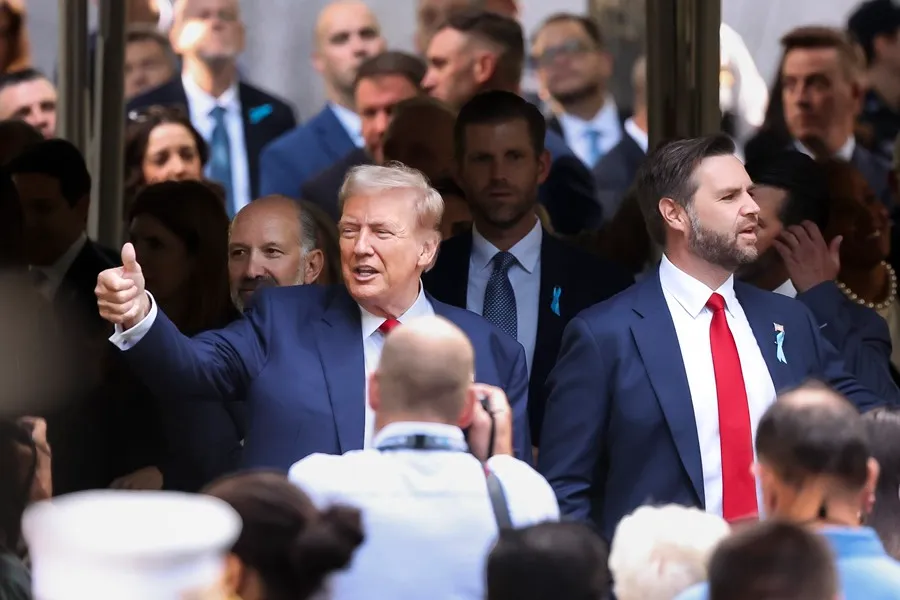
The president-elect of the United States, Donald Trump, has begun to shape the decrees he will sign on his first day in power, including one on immigration on the border with Mexico, and the team that will advise him in the White House and in his cabinet.
As reported this Thursday by The Washington Post and Politico newspapers, Trump’s campaign is already in transition mode after the US elections this Tuesday, in which he won a second term that will begin on January 20.
Closure of the border
Trump plans to enact on his “first day” two decrees to “close” the border with Mexico and promote oil drilling to lower prices, Jason Miller, advisor to the president-elect, told Politico.
The advisor did not give details about what this alleged “closure” of the border would imply, if it would mean closing the legal ports of entry or increasing security in that porous border area, which covers more than 3,000 kilometers.
That plan of the former US president between 2017 and 2021 has generated fears in the government of the current president, Joe Biden, that there may be a swege of migrants trying to enter the country through the southern border before the transition, NBC News network reports this Thursday.
Trump already announced this week that “on the first day” of his mandate he will threaten Mexico with tariffs of 25% on all its imports if not for the “arrival of criminals and drugs to the country”, something that could mean a violation of the T-MEC trade treaty.
Trump’s team has not specified what its decrees on energy matters will consist of either, but the former president’s commitment to fossil fuels has generated concern among advocates of a green transition to tackle the climate crisis.
Marco Rubio, among the candidates for secretary of state
Meanwhile, the campaign of the president-elect began this Wednesday to seriously debate possible names to form his government team, with Republican Senator Marco Rubio among the favorites to become Secretary of State, according to the Washington Post.
The Hispanic legislator for Florida, of Cuban origin, had a remarkable influence in politics towards Latin America during Trump’s first term, given his power in the Senate Foreign Relations Committee, and this year he was among the aspiring vice president in the Republican campaign.
Former director of national intelligence Rick Grenell, very close to Trump and who was ambassador to Germany between 2018 and 2020, and Senator Bill Hagerty, who was ambassador to Japan, also sound like possible heads of US diplomacy, according to Politico.
The influence of Elon Musk
For the position of Secretary of the Treasury, the names of billionaire investor John Paulson, known for having amassed a huge fortune by anticipating the 2008 financial crisis, and the current economic advisor to the president-elect, the investor Scott Bessent, indicates the Post.
Republican Senator Tom Cotton could become Secretary of Defense, while independent candidate Robert Kennedy Jr., known for his anti-vaccine stance, is expected to have a role related to health or regulation of medicines and food in the country.
Billionaire Elon Musk and television presenter Tucker Carlson spent the day with Trump in Mar-a-Lago (Florida) this Wednesday, so they could influence those first measures and the selection of their cabinet, for whose confirmation no obstacles are expected, thanks to the Republican majority in the Senate.
International
“Promises delivered”: Milei celebrates milestone and pushes ahead with structural reforms
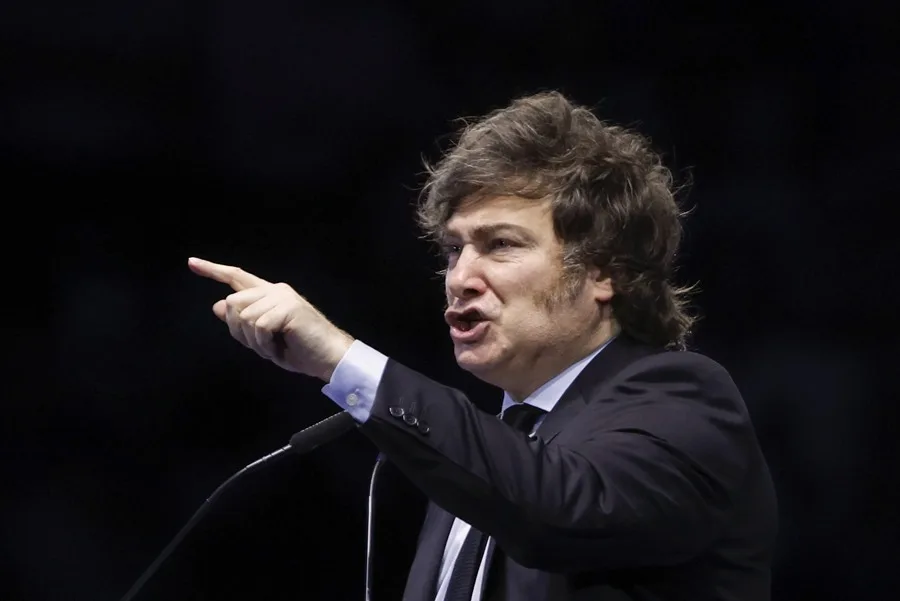
Argentine President Javier Milei marked the second anniversary of his victory in the November 19, 2023 presidential election on Wednesday, declaring that he has fulfilled “every campaign promise” even before reaching the halfway point of his term.
In a message posted on his official X account, Milei stated that his administration set out from day one to implement its political program without concessions. “We have dedicated ourselves to fulfilling every campaign promise, to the point that they were completed in less than two years, despite the entire status quo’s obstruction machine,” the president wrote.
Milei won the runoff election with 55.65% of the vote, defeating then–Economy Minister Sergio Massa, who received 44.35%. He officially took office on December 10, 2023, describing himself as the “first libertarian liberal president in the history of humanity.”
The head of state also highlighted the performance of his party, La Libertad Avanza (LLA), in the October 26 legislative elections, where it secured more than 40% of the votes. This result, he said, gives him the momentum to advance toward a new phase of “structural reforms.”
“We renew our commitment to all Argentines to implement all second-generation reforms so that, once and for all, we enter the path that will make Argentina great again,” Milei wrote, reaffirming his push for a deep transformation of the country’s economic model.
During his presidential campaign, Milei pledged to drastically shrink the size of the state, carry out sweeping labor and tax reforms, and radically overhaul economic policy through a “fiscal shock” plan aimed at controlling inflation and achieving a budget surplus.
International
Haitian authorities mobilize nationwide as gangs threaten confrontation with police
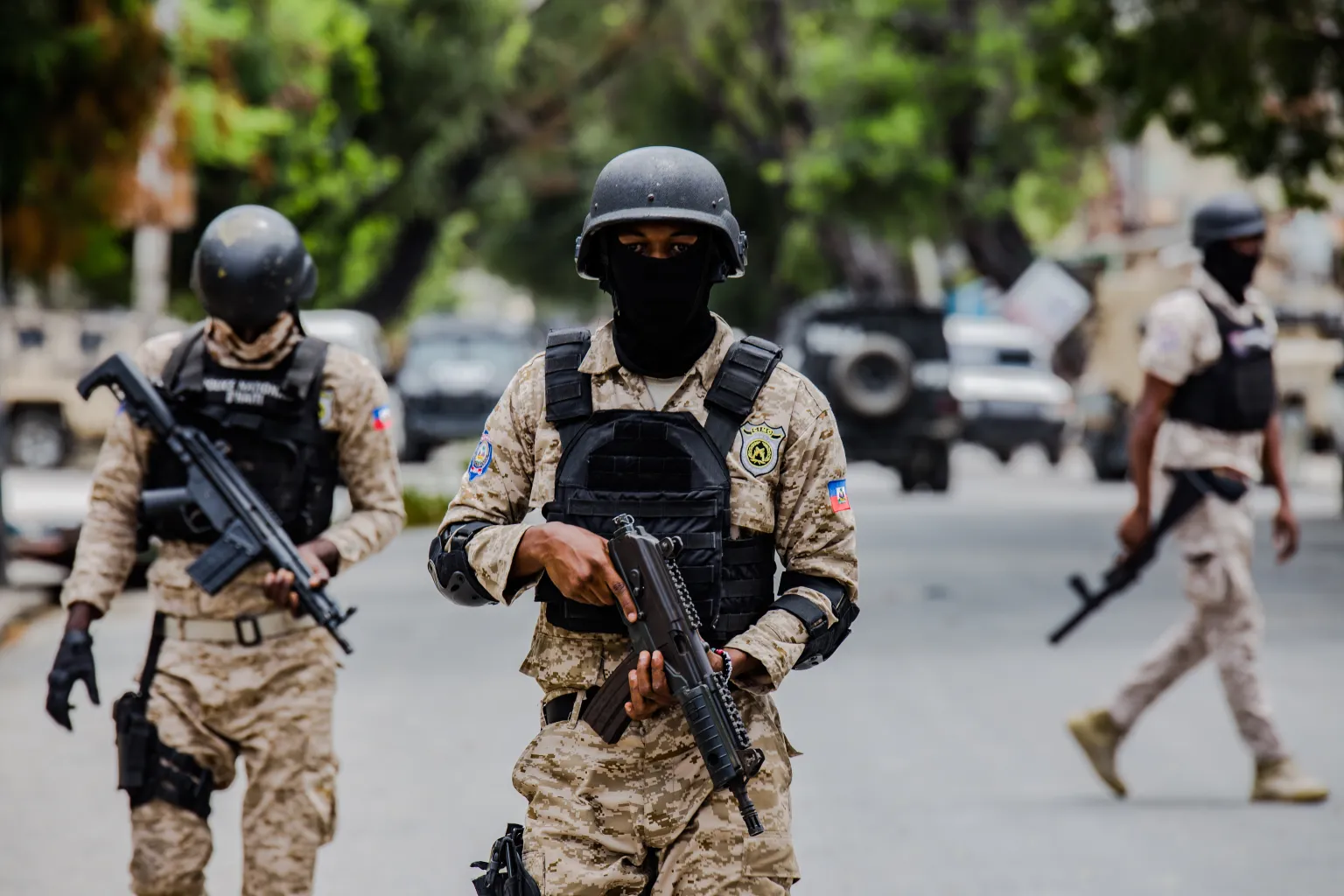
Haiti’s National Police (PNH) declared a state of maximum alert after the leader of the Viv Ansanm armed coalition, Jimmy Chérizier — known as “Barbecue” — urged the population to stay indoors amid the prospect of clashes with security forces carrying out an offensive against gang groups.
The threats came days after the PNH, the Haitian Armed Forces (FAD’H), and the Gang Suppression Force (GSF) launched a large-scale operation against the 400 Mawozo gang, which for years has controlled and kidnapped residents in Tabarre and Croix-des-Bouquets, north of the capital.
The police announced the suspension of all vacations and leave for officers “in order to mobilize all police personnel, with the goal of ensuring optimal security for the population and responding to any eventuality.” Authorities reported that operations will continue specifically in Croix-des-Bouquets, territory controlled by 400 Mawozo under the command of Lanmò Sanjou.
In recent days, security forces located and raided several hideouts used by criminal groups, managing to kill or force the retreat of gang members from strategic areas. Police Director General Vladimir Paraison visited the barracks of the units involved in the operations to express his “appreciation for the courage and commitment of the police in their relentless battles to restore order and uphold the law.”
Chérizier — for whom the United States has offered a $5 million reward — urged citizens on Sunday to remain in their homes so the gangs could confront police forces and “avoid becoming victims.”
“The time has come, Haitian people, to unite to liberate this country,” he declared in a message shared on social media.
International
U.S. House poised to approve bill requiring declassification of Epstein files
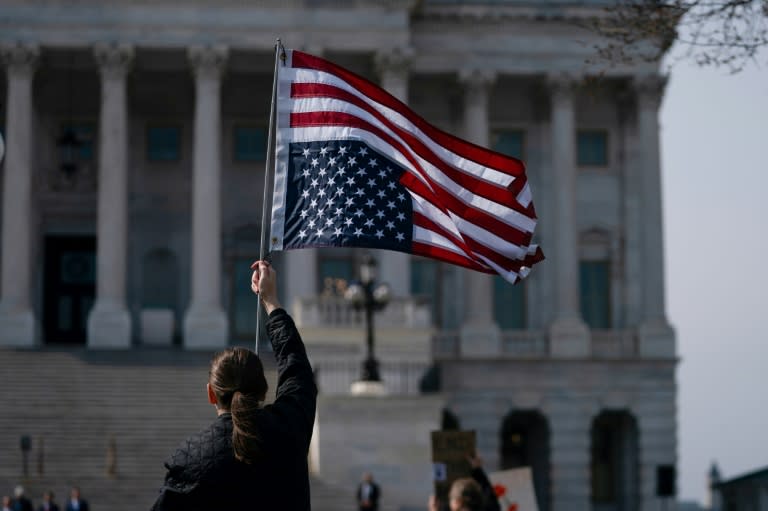
A group of lawmakers in the U.S. House of Representatives said on Tuesday that a bill requiring the Department of Justice to declassify documents related to the case of billionaire Jeffrey Epstein is expected to pass with “overwhelming” support.
Democratic Representative Ro Khanna, the sponsor of the proposal, urged the Senate not to allow delays or amendments. “I expect it to pass by an overwhelming majority in the House. I don’t want politicians playing games with this. They need to pass it in the Senate without changes,” he said from Capitol Hill, joined by Republicans Thomas Massie, Marjorie Taylor Greene, and several Epstein victims.
The vote is scheduled for Tuesday at 2:00 p.m. local time, after 218 lawmakers from both parties forced House Speaker Mike Johnson to bring the measure to the floor.
U.S. President Donald Trump, who has been criticized by Democrats for his past friendship with Epstein, stated that he would sign the bill if it passes both chambers of Congress. His support came after a shift in his position, following his name appearing in leaked documents.
Representative Marjorie Taylor Greene, a frequent ally of the president, publicly confronted Trump in recent days over the issue. Standing alongside several Epstein victims, she defended her backing of the bill despite Trump calling her a “traitor.” “These women have fought the most horrible battle that no woman should ever have to fight (…) even against the president of the United States,” she said.
Taylor Greene added that the “real test” will be whether the Department of Justice complies with releasing the documents once the bill is enacted. “Or everything will remain sealed under the pretext of ongoing investigations,” she warned.
Haley Robson, one of the victims, also spoke during the press event. “I’m traumatized, I’m not stupid,” she said firmly, arguing that attempts by certain sectors to delay the process have caused tremendous emotional harm. “This is not political. This is America. This is the land of freedom,” she stated.
-
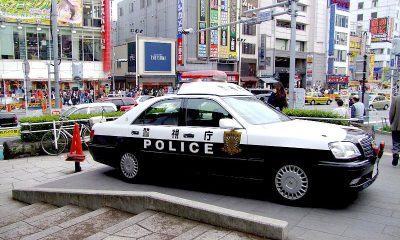
 International4 days ago
International4 days agoSinger seriously injured after knife attack in Tokyo’s Akasaka District
-
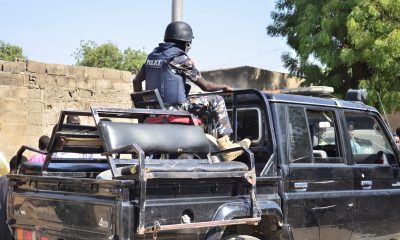
 International3 days ago
International3 days agoArmed Men Kidnap 25 Schoolgirls in Northwestern Nigeria, Police Report
-

 International3 days ago
International3 days agoTrump: “I Don’t Rule Out Anything” When Asked About Troops for Venezuela
-
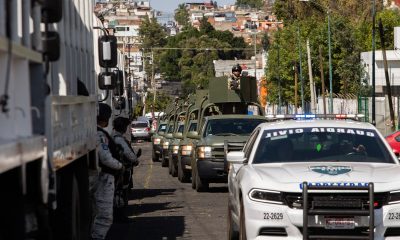
 International3 days ago
International3 days agoArmed Civilians Block Roads in Michoacán Amid Operation Targeting Criminal Leader
-

 International3 days ago
International3 days ago79-Year-Old ICE Detainee Faces Hearing as Family Warns His Health Is Rapidly Deteriorating
-
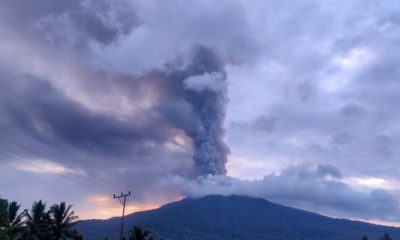
 Internacionales1 day ago
Internacionales1 day agoIndonesia’s Mount Semeru erupts, sends ash 13 km high and forces evacuations
-
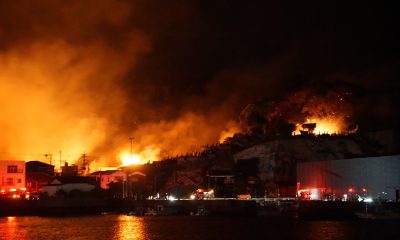
 Internacionales1 day ago
Internacionales1 day agoOne killed, 188 evacuated as wind-driven blaze rips through Kyushu neighborhood
-
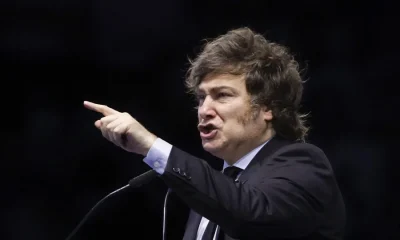
 International1 day ago
International1 day ago“Promises delivered”: Milei celebrates milestone and pushes ahead with structural reforms
-
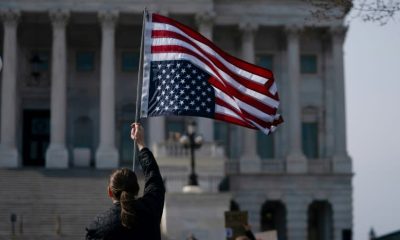
 International2 days ago
International2 days agoU.S. House poised to approve bill requiring declassification of Epstein files
-
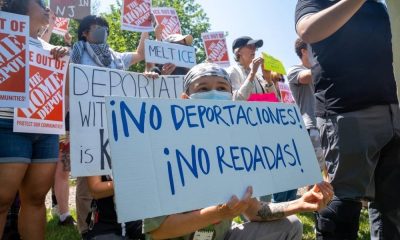
 International2 days ago
International2 days agoFive mexicans detained in North Carolina immigration raids, Sheinbaum confirms
-
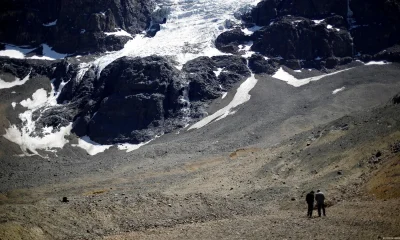
 International2 days ago
International2 days agoChile’s glaciers to lose half their water supply capacity by 2100, study warns
-
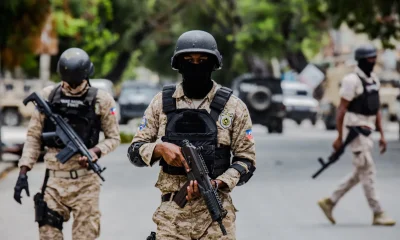
 International2 days ago
International2 days agoHaitian authorities mobilize nationwide as gangs threaten confrontation with police
-

 International2 days ago
International2 days agoSheinbaum to Trump: Cooperation yes, U.S. military intervention no
-
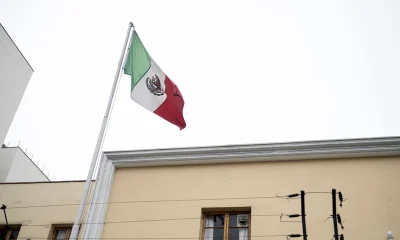
 International2 days ago
International2 days agoPeru pauses safe-conduct decision as dispute over political asylum deepens






























